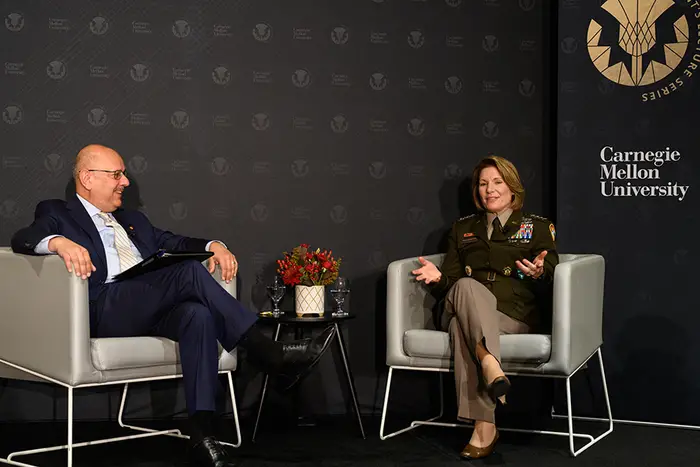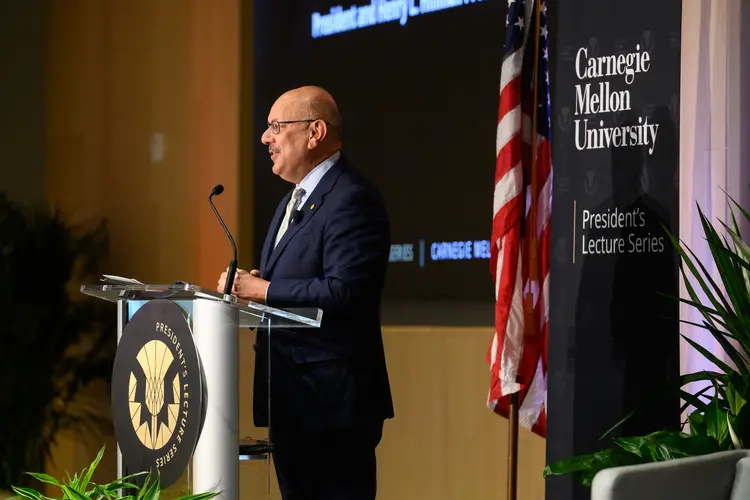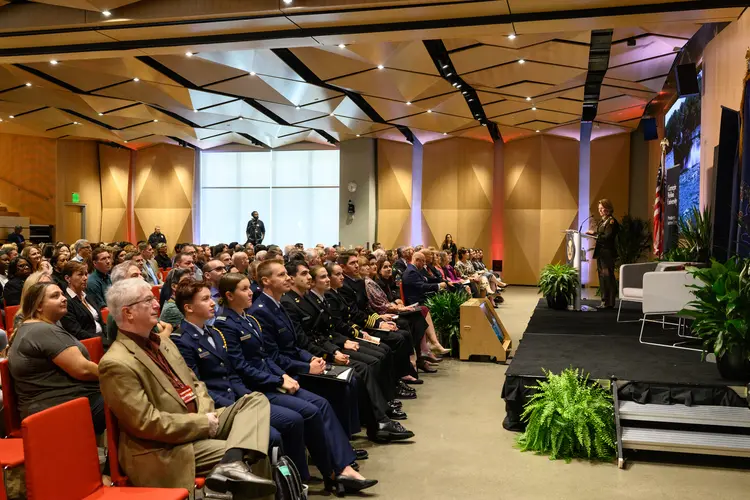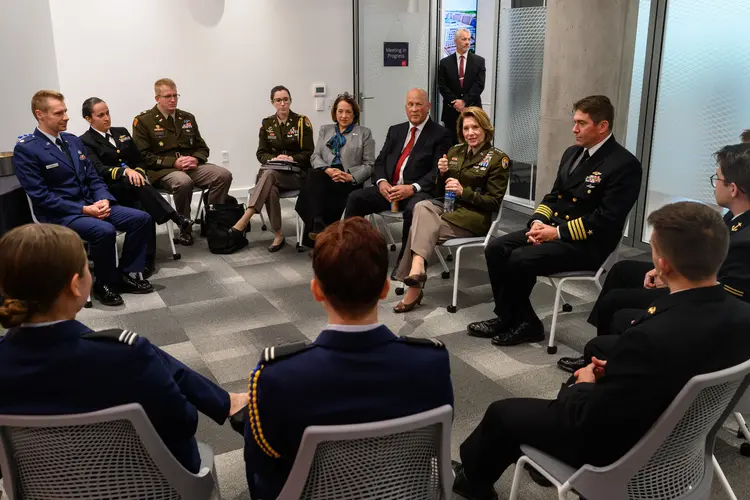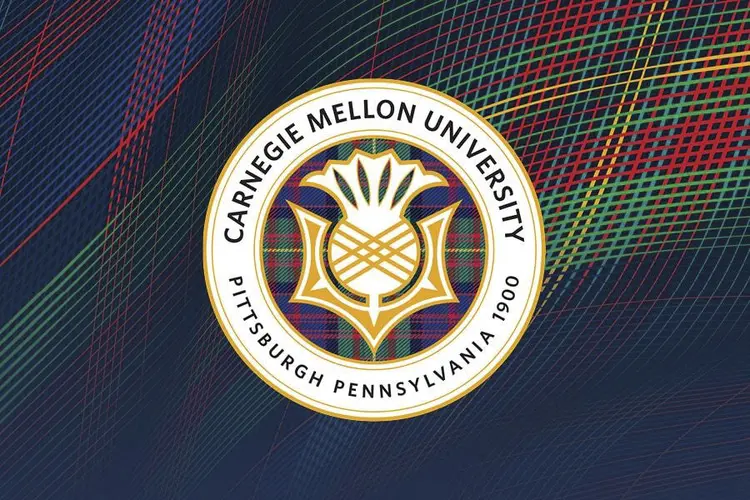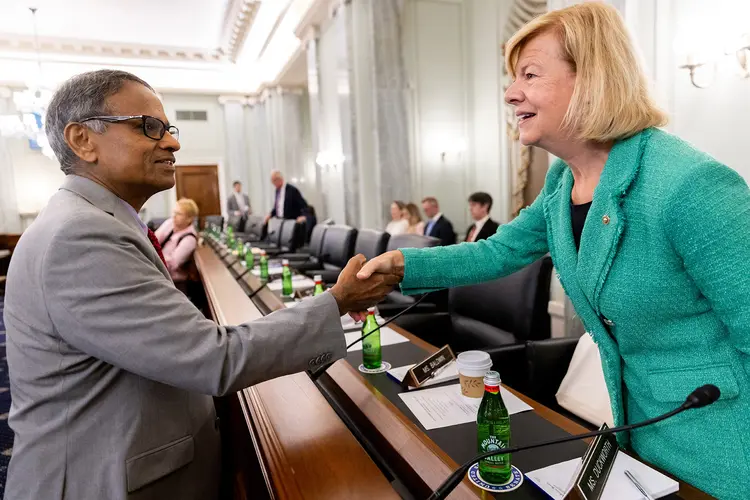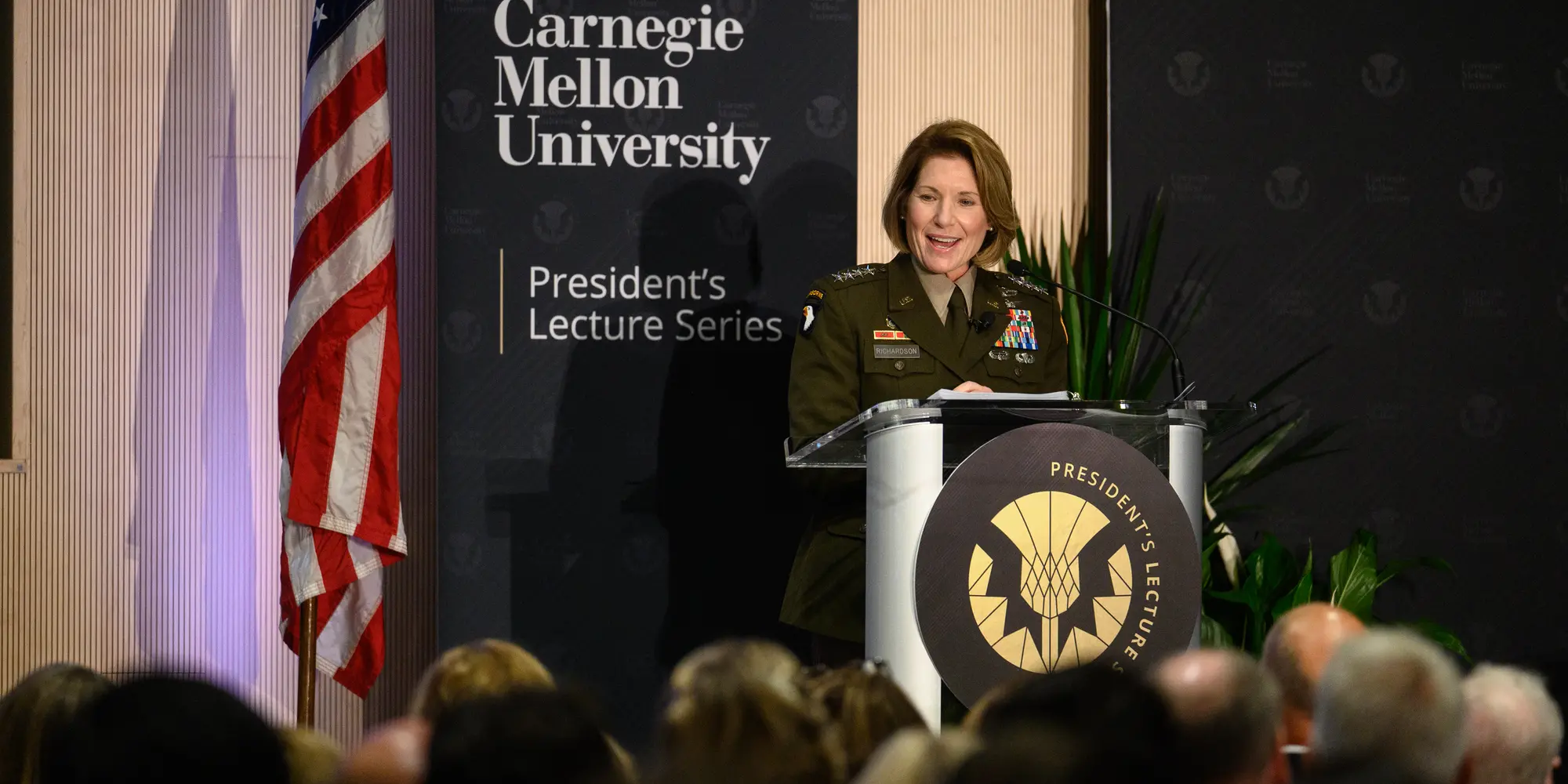
CMU President Kicks Off New Lecture Series with Gen. Richardson of U.S. Southern Command
Media Inquiries
The newly launched President’s Lecture Series(opens in new window), hosted by Carnegie Mellon University President Farnam Jahanian, kicked off Thursday, Sept. 28, with a distinguished lecture by Gen. Laura Richardson(opens in new window), the first woman commander of U.S. Southern Command. The lecture was followed by a fireside chat with Richardson and Jahanian.
The new lecture series is designed to connect members of the CMU community with national leaders in the public and private sector, providing the campus community with an opportunity to hear directly from these leaders about the science, technology, policy and culture that are shaping society today.
Jahanian said the series arrives at a pivotal time.
“As technology continues to evolve at a rapid pace, new challenges and opportunities emerge, but the need to safeguard our global competitiveness, national security and democracy remains the same,” Jahanian said. “CMU is very proud to do its part in supporting these efforts. As a leader at the intersection of technology and creativity, Carnegie Mellon advances the work of AI, machine learning and cybersecurity for good, and with the steadfast support of our public and private sector partners, we are applying innovations from CMU's laboratories to practice, all while also advancing knowledge to benefit society and improve the human condition.”
Southern Command, the area of the globe for which Richardson is responsible, encompasses 14.5 million square miles across Central America, South America and the Caribbean. It includes 31 countries and 11 areas of special sovereignty — essentially everything south of Mexico.
In her lecture, Richardson expressed the desire to work with partners like CMU to tackle the many challenges in the area, such as flooding, droughts, erosion, illegal mining, illegal fishing, wildfires, air and water pollution, and drug trafficking.
“Your work will help democracies across the Western Hemisphere emerge as global leaders to feed and fuel the world." — Gen. Laura Richardson
“From my perspective as a commander, we must constantly leverage new technologies to maintain overmatch of our strategic competitors while assisting democratic governments in securing their borders and meeting the needs of their people,” she said. “Southcom is already incorporating many new technologies in our work with our partner nations. The hardest part may be bringing it all together.”
Richardson said the projects people are working on at CMU have the potential to tremendously assist in this effort, and not just for Southcom and the Department of Defense.
“Your work will help democracies across the Western Hemisphere emerge as global leaders to feed and fuel the world,” she said.
Richardson went on to identify some of the specific ways in which CMU could be of help.
“Cyber capabilities here can ensure our democratic partners can secure their financial institutions, prevent malicious attacks during elections, protect health care systems and their records, teach basic hygiene so they can protect their data,” she said. “Robotics technology can provide assistance to those in need during natural disasters, help governments provide goods and services to remote areas, increase mineral and agriculture production to bring economic prosperity, provide medical care in ways we have not yet thought of.
“Advances in artificial intelligence and machine learning can predict weather patterns to provide early warning for natural disasters, provide analysis of information so leaders can make more informed decisions, identify and counter disinformation and misinformation, determine how the negative effects of climate change can be effectively combatted.”
But technology itself will not provide solutions, she noted.
“There has to be policy that supports the use of the new technology, agreements between countries and an understanding of the risks,” she said.
Leveraging New Technologies
In her distinguished lecture to the CMU campus community, Gen. Laura Richardson discussed "Partnering with the Western Hemisphere: Challenges and Opportunities."
The lecture was followed by a fireside chat with Richardson and Jahanian, during which she also took questions from the audience.
During the fireside chat that followed, she took questions from Jahanian and the audience, including what advice she would give to young women in the military who are just starting their careers.
“Well, I give advice, I would say, not just for young women but for young men as well. Keep your head down. Don't try to come into an organization and fit in right away and make friends. Obviously we all want to have friends, but you're there for a reason,” she said. “You have a skill that you're going to contribute to that organization, or the team, and that team wants you to be able to be proficient at your skill. Right? And that's how you fit in. That's how everything will fall into place.”
Richardson concluded the hour by acknowledging all the work going on at CMU that is relevant to addressing some of the Southern Command's most complex challenges as she works to make the Western Hemisphere an even more secure place to live.
“I look forward to seeing how the hard work here can translate into solutions for this very important region,” she said.
Details surrounding the next lecture in the series will be made available in an announcement forthcoming.
